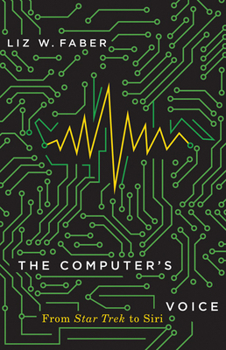The Computer's Voice: From Star Trek to Siri
Select Format
Select Condition 
Book Overview
A deconstruction of gender through the voices of Siri, HAL 9000, and other computers that talk Although computer-based personal assistants like Siri are increasingly ubiquitous, few users stop to ask what it means that some assistants are gendered female, others male. Why is Star Trek 's computer coded as female, while HAL 9000 in 2001: A Space Odyssey is heard as male? By examining how gender is built into these devices, author Liz W. Faber explores contentious questions around gender: its fundamental constructedness, the rigidity of the gender binary, and culturally situated attitudes on male and female embodiment. Faber begins by considering talking spaceships like those in Star Trek , the film Dark Star , and the TV series Quark , revealing the ideologies that underlie space-age progress. She then moves on to an intrepid decade-by-decade investigation of computer voices, tracing the evolution from the masculine voices of the '70s and '80s to the feminine ones of the '90s and '00s. Faber ends her account in the present, with incisive looks at the film Her and Siri herself. Going beyond current scholarship on robots and AI to focus on voice-interactive computers, The Computer's Voice breaks new ground in questions surrounding media, technology, and gender. It makes important contributions to conversations around the gender gap and the increasing acceptance of transgender people.
Format:Paperback
Language:English
ISBN:1517909767
ISBN13:9781517909765
Release Date:December 2020
Publisher:University of Minnesota Press
Length:256 Pages
Weight:0.72 lbs.
Dimensions:0.6" x 5.5" x 8.4"
Customer Reviews
0 rating






